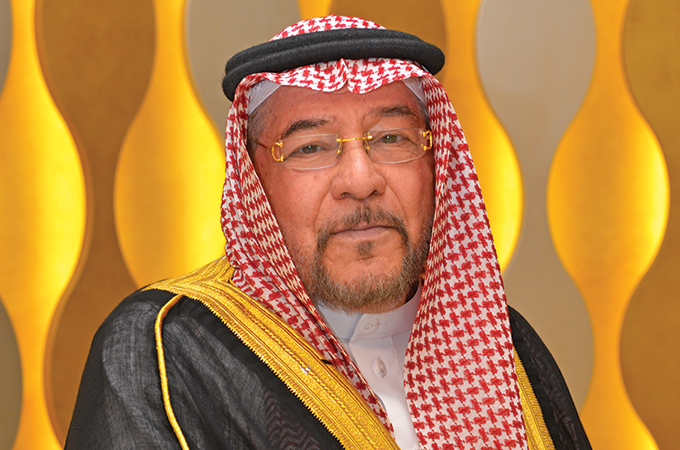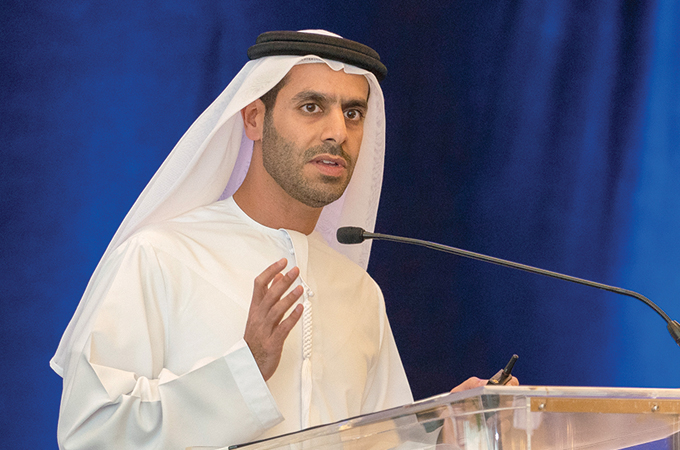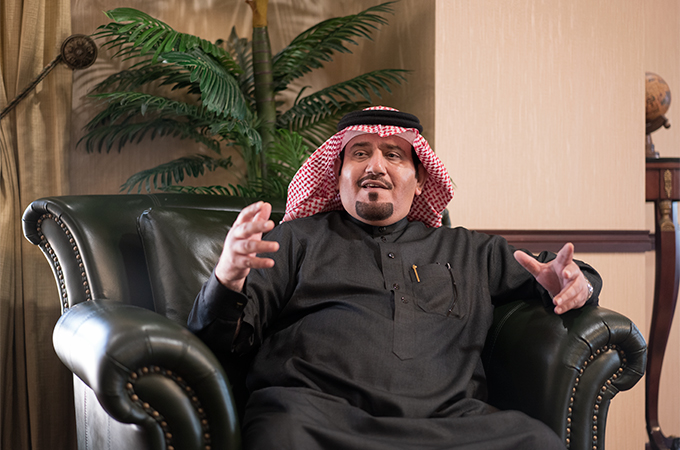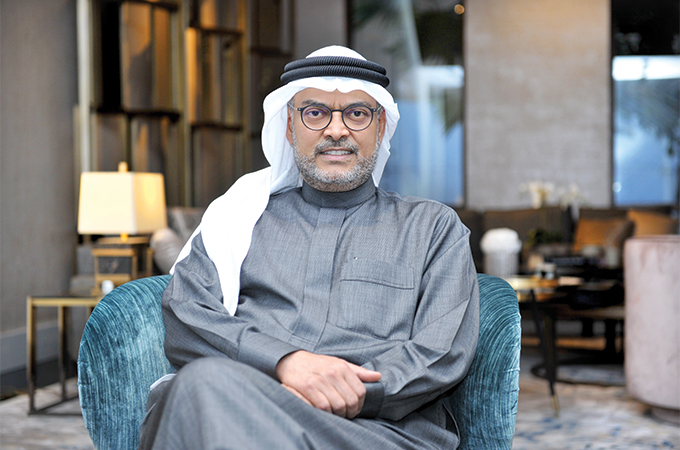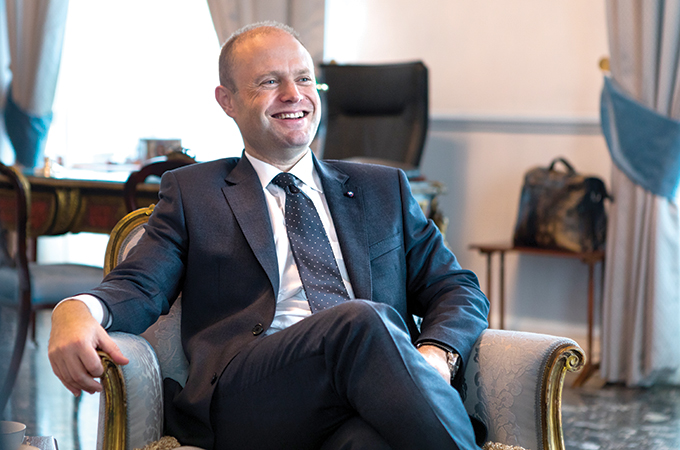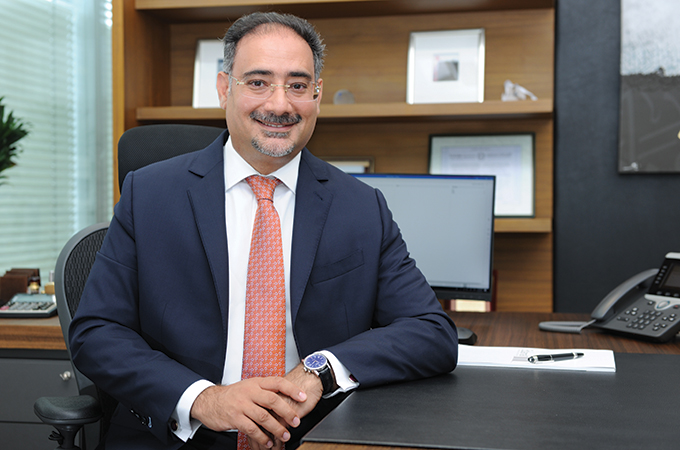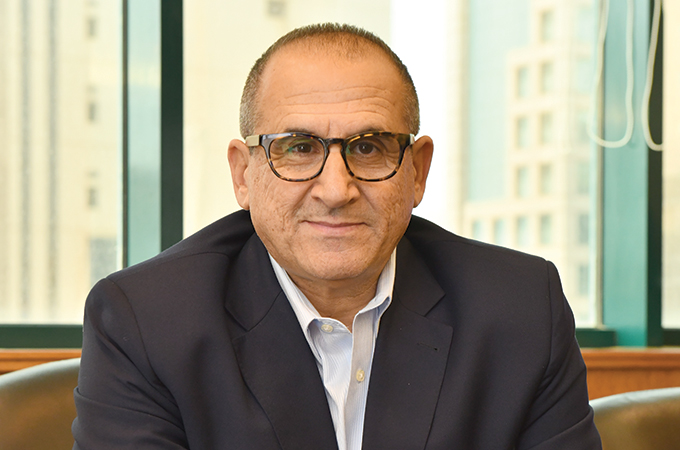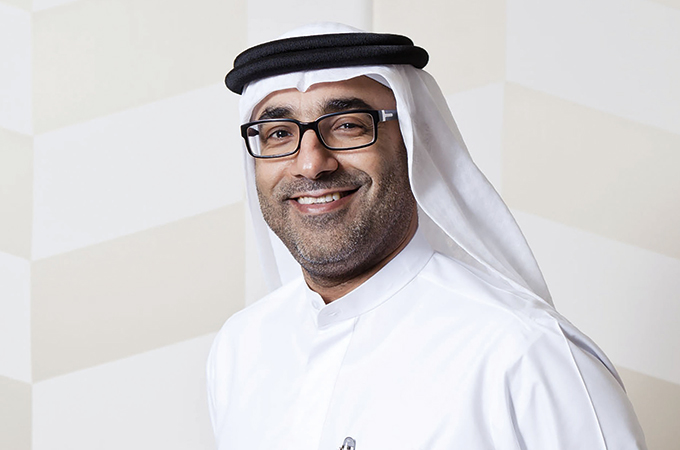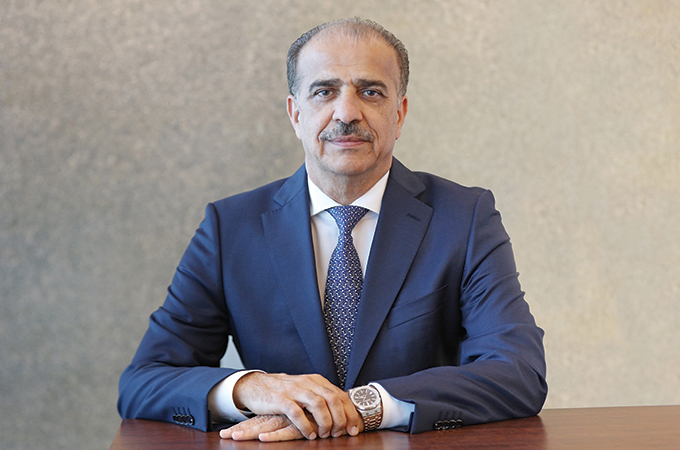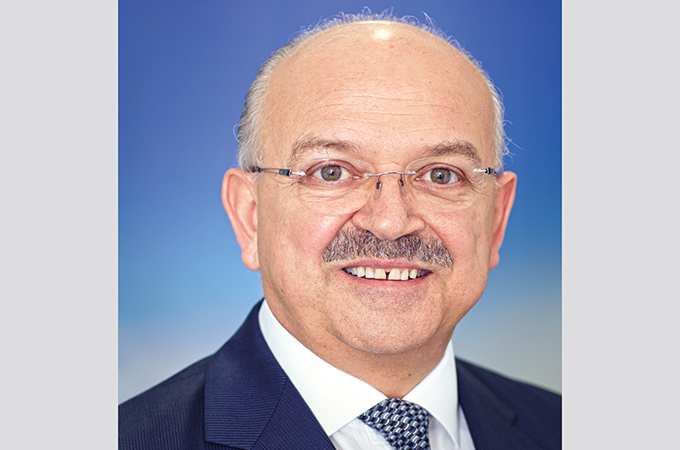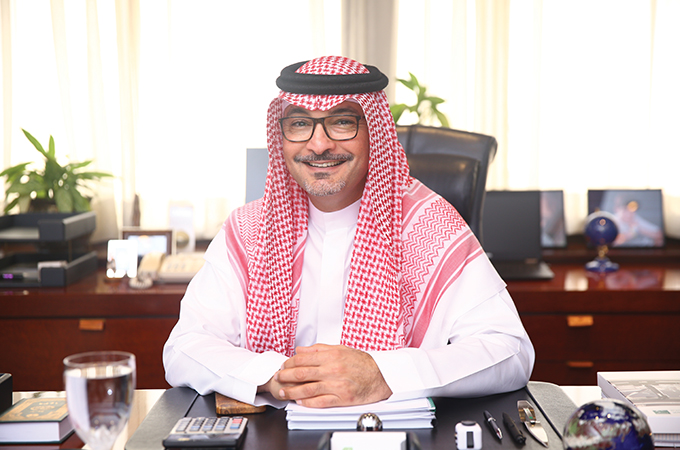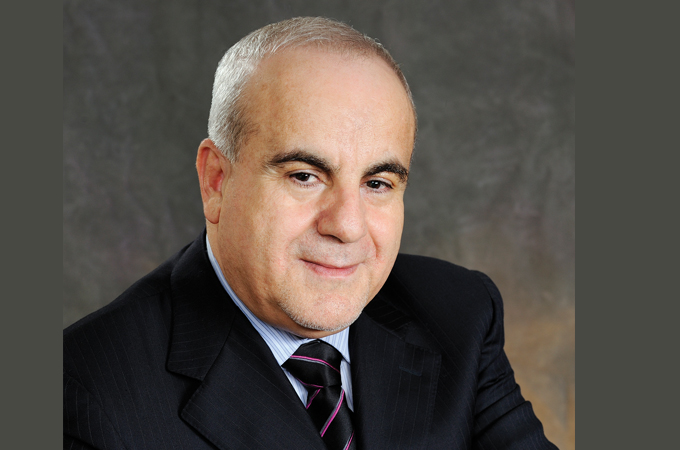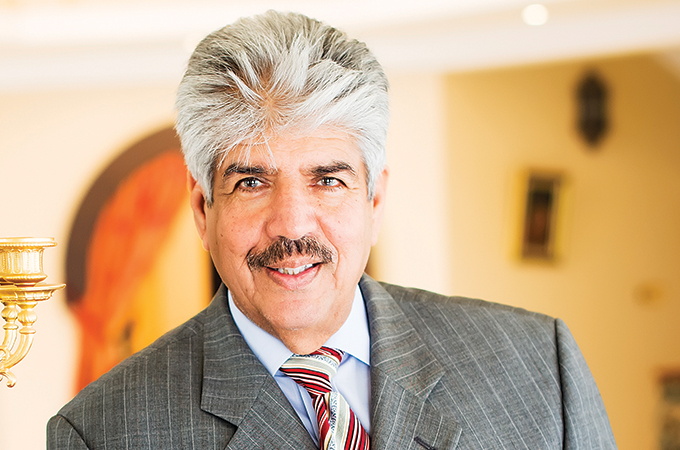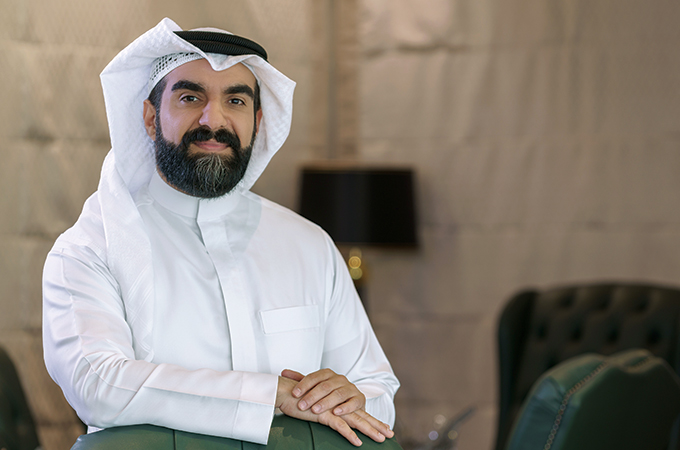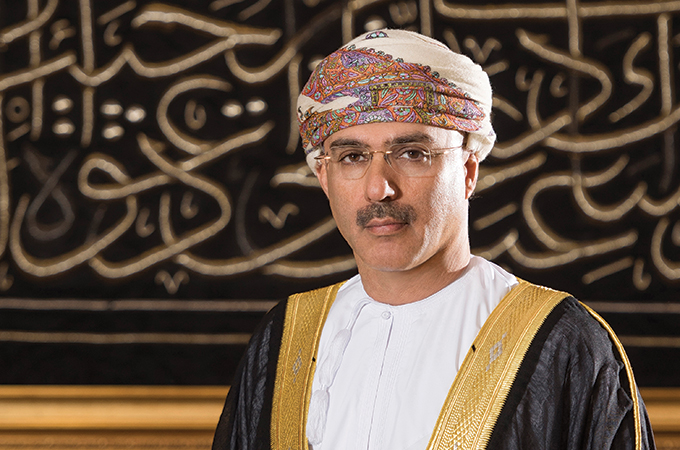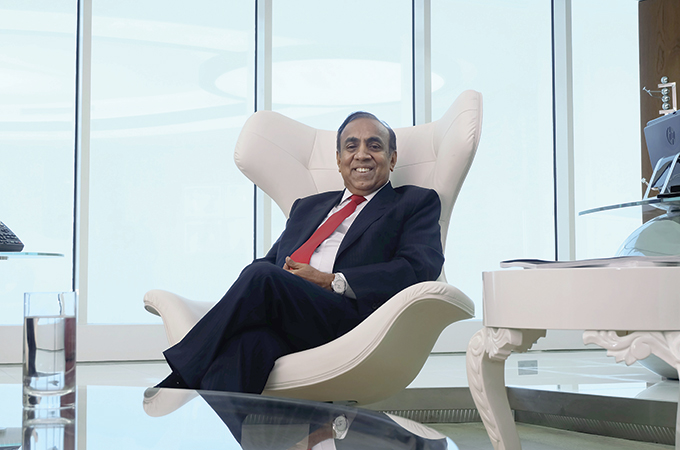Winter 2016
Eminent Saudi businessman Dr Abdul Moeen Al Shawaf is not just an expert in construction but also an accomplished scholar, intellectual and publisher
Dr Abdul Moeen Al Shawaf, the founder of Al Bawani, one of Saudi Arabia’s most successful contracting companies, has over the last 15 years followed his true passion in life which has been the pursuit of his love of literature and history.
Dr Al Shawaf originally envisioned building a publishing house that would have a social impact across the Arab world but his other business interests meant that he was unable to fulfill this dream. However, through his publishing house – which has bookshops in Jeddah, Dammam and Riyadh – he has been actively involved in not only the distribution of books but also the writing of what he calls ‘jawal’ (mobile) books that tackle topics ranging from politics to economics and other significant current issues.
“We’ve had a publishing licence for almost 30 years and in those days it was difficult to obtain such a licence due to the strict controls over media for security reasons,” says Dr Al Shawaf, who has the appearance more of a university professor than of a construction magnate in modern-day Saudi Arabia.
“Anyone who has money and experience can be a contractor but not everyone can adapt to publishing, giving readers what they want in a world where the internet and technology has heavily influenced reading habits. Other publishers tend to be confined to one city and in most cases they have little interest in the content of the books they sell, being more interested in how many copies are sold.”
After finally being able to concentrate on his publishing business, Dr Al Shawaf had to contend with the arrival of the internet and the access to information through new devices spurred by new technology. As a result, in a world where people have little time to read, Dr Al Shawaf has developed his own series of small books, each running to about 50 pages. The content of each can be both controversial and open-minded, according to Dr Al Shawaf, and includes topics such as the fight between the dollar and the euro.
EDUCATION
Dr Al Shawaf joined his cousins in Riyadh after his senior uncle established himself in the newly formed capital of Saudi Arabia, during a time when King Abdulaziz was uniting the country. After the death of his father in 1950, his elder brother helped care for him as did his uncle and he completed his university education in Riyadh obtaining a bachelor’s and then a master’s degree from King Saud University.
“I actually studied for my degree whilst working,” says Dr Al Shawaf, who was awarded his first PhD in 1994 from the University of Islamic Studies with a dissertation on the dispute following the death of the Prophet. “Working and studying is unusual, as most people will either do business or study. In my case I was able to do both,” says Dr Al Shawaf, whose second doctorate was awarded by the University of Damascus in 2008.
His passion to seek knowledge whilst still working has been one of the mainstays of his life and is reflected in his successfully obtaining his second PhD which was based on the study of the Salahuddin Ayubi period between 468 and 569 AH.
Dr Al Shawaf started his business career dealing in building materials and working with the Dutch construction giant Ballast Nedam, which at the time was involved with the building of the Bahrain-Saudi Arabia Causeway. The relationship with Ballast Nedam developed into a partnership with the establishment of Ballast Orient Contracting Company (BOCC) and a soil investigation company called Hydra Soil, with Dr Al Shawaf as a Director and Manager of the two firms respectively.
“I remained a partner with Ballast Nedam until they finally left Saudi Arabia. I had to establish companies in Holland in order to be able to supply the cement and steel for the Bahrain Causeway,” says Dr Al Shawaf. “The companies were sub-contractors to Ballast Nedam but I also supplied material through Al Shawaf Establishment and I had my office in Amsterdam. I had to supply material to the Air Force and the Bahrain-Saudi Causeway, which required special steel and cement which could be used in a marine environment.”
The level of trust which Ballast Nedam placed in Dr Al Shawaf at that time was evidenced by the fact that despite owning just 25 and 30 per cent of the shares in Hydra Soil and BOCC respectively, Dr Al Shawaf as a Saudi was entrusted to be the sole manager of the two companies. “They trusted me completely and although they occasionally changed the managers, I was always there because of the trust they had in me and my knowledge of Saudi law and the way to conduct business in the Kingdom,” he says.
AL BAWANI
Following a 25-year relationship with Ballast Nedam which ended when the Dutch company pulled out of the Saudi market for financial reasons, Dr Al Shawaf established Al Bawani in 1993. Today he acknowledges that the success of Al Bawani is partially due to the disciplines and training which he was exposed to whilst working with Ballast Nedam.
“If you are a local contractor, it is hard to have an international mindset in your business. However, Ballast Nedam helped us establish Al Bawani along the right lines and today we are more successful than other companies because we have implemented Ballast Nedam’s work systems which we still follow today,” says Dr Al Shawaf, who continues to maintain a relationship with the senior directors of Ballast Nedam.
Dr Al Shawaf is currently writing a book about King Abdulaziz Ibn Saud who united Saudi Arabia in the last century. Titled ‘Al Mowahed Wa Al Tawheed’ (One God and One Country), the book shows how King Abdulaziz successfully united Saud Arabia whilst other countries like Egypt and Syria tried to do the same thing but failed.
His thirst for knowledge has encouraged him to be an avid reader of history and current affairs leading to a well-deserved reputation as an intellectual in Riyadh society. His main influences have come from his readings including the famous Egyptian journalist and author Abbas Mahmoud El Aqqad whose works include ‘Al Abkariat’, as well as Mustafa Al Manfaluti, the Egyptian writer and poet.
His own writings have been endorsed by members of the Royal family with King Salman (when he was Governor of Riyadh) acknowledging the value of book he published about Yugoslavia at a time when there were no diplomatic relations between the two countries – at the time Yugoslavia had a communist regime and little was known about the country. Dr Al Shawaf personally presented his book to King Salman and received a letter encouraging him to continue his work in publishing. At the time, Dr Al Shawaf was a member of the Equestrian Club which was under the patronage of the late King Abdullah, where he received a trophy from him for winning an athletic competition.
Besides his love of reading and writing, Dr Al Shawaf’s other passion in life is his children – he is the proud father of four sons.
His eldest Feras, 46, is an experienced lawyer who is leading his Riyadh-based practice and is an active litigator in addition to working with foreign companies interested in growing their businesses in Saudi Arabia. He has co-operated with various international firms over the years such as Trowers and Hamlins.
His second son Fakher, 43, was educated in Riyadh graduating as an engineer and is now responsible for the day-to-day running of Al Bawani, which is rapidly becoming one of the most successful contracting companies in the Kingdom.
His third son Nasser, 36, is named after Sheikh Nasser Al Rajhi who was the first person to have provided Dr Al Shawaf with bank guarantees in the early years of his business. Nasser runs the family’s interests in Dubai and London as CEO of Rassmal, which is a private investment holding company with affiliated group companies managing over $1 billion in assets. The company is currently developing Park Crescent West, a development of 70 apartments and six town houses in one of London’s most prestigious residential areas overlooking Regent’s Park. Nasser is also an accomplished equestrian who has competed and represented Saudi Arabia in a number of prestigious events regionally and internationally over the past few years.
The youngest son Shawaf manages the publishing, advertising and trading businesses and also has a legal background.
Looking back on the success of a company which he started from almost nothing, Dr Al Shawaf believes that the reason for his success is based on the integrity and honesty with which he has always carried out his business. “We have a saying in Arabic which translated means that the straight line is the fastest path between two dots. The way and how you arrive at your objective is transparent,” says Dr Al Shawaf, who also believes in working towards clearly stated objectives.
Apart from its many interests in Saudi Arabia, Al Bawani is also active in the UAE, the UK and Turkey where Al Shawaf has property and trading interests, the latter to support the family’s construction business.
Dr Al Shawaf acknowledges that in the early years his main financial support came from the late Nasser Al Rajhi and Ballast Nedam. “As an individual who supported us, Sheikh Nasser Al Rajhi was key to our future as he provided us with a bank guarantee at a time when the bank refused to do so. After that we received guarantees from Ballast Nedam,” he recalls.
Religion plays a big role in Dr Al Shawaf’s life and he has passed onto his children a simple philosophy: “I have taught my children from the beginning that I have never put anything in their mouths that was haram and that not a drop of their blood is haram. I want them to keep it this way in their personal lives and business dealings,” he says. “Today my children are more successful than me because times have changed and they have more experience and have been educated to a high level. Fakher, who is a civil engineer, knows exactly how much steel he will need for a project whilst in my case I have no idea… but of course I am able to manage in the same way that a Defence Minister doesn’t need to know how to drive a tank to manage his officers,” he says with a smile.
Dr Al Shawaf’s philanthropic activities include his membership of the board of the King Salman Social Centre in Riyadh which is a social club for the elderly. He is a member of the Riyadh Literary Club which is made up of poets, writers, thinkers and philosophers and also a member and supporter of the National Association for Retirees. Dr Al Shawaf’s wife is also extremely active in this area, supporting some 14 charities and societies in Riyadh and effectively, after bringing up her children, taking on the family’s philanthropic activities in the community over the past 25 years.
“My wife is involved on a number of charitable boards and works with the wife of the late King Abdullah who heads up a charity called the In House Medical Care Society which helps people who need medical equipment at home,” says Dr Al Shawaf. “She is also involved with orphanages which I have always supported and travels throughout Saudi Arabia to organise charitable events across the Kingdom.”
For the future, Dr Al Shawaf wants to concentrate on his writing, leaving the running of his companies in the hands of his sons. He is currently writing a book called “Al Thawr Yakol Al Thawra” meaning ‘The Bull Eats the Revolution” based on the premise that revolutions inevitably fail as those who come to power renege on their promises.
“Today the most successful countries are those which are kingdoms like Sweden, Norway, Denmark, Holland and Japan,” says Dr Al Shawaf. “The leaders of revolutions make promises and then steal from their countries. Look at Africa, which although rich in minerals and assets, is still poor after so many revolutions. As a Kingdom, Saudi Arabia is better placed than other Arab countries with happier citizens,” he adds.
PROGRESS
Looking at Saudi society today, Dr Al Shawaf says the Kingdom is progressing step by step. “Progress is gradual and you can see today that the Royal family is loved and trusted by the people who can see the developments in education, healthcare and infrastructure. Anyone can make an honest living and if a Saudi does not succeed in this free business environment that is his problem. Unlike Europe and America we have no taxation and opportunities are there to freely import and export, buy land and create the best life possible compared with other countries. I call this country ‘Saudi Saeed’… ‘Happy Saudi’.”
Dr Al Shawaf can look back on his accomplishments in both his business and personal life with a high degree of satisfaction. He has laid the foundations and built an organisation which today includes one of the leading contracting companies in Saudi Arabia and he has spread his business interests beyond the GCC into Turkey and the UK. His sons are highly motivated and successful individuals who have taken their father’s lead and are intensely growing the family’s interests for the future. The possibility of taking the family’s construction business public is under consideration but Dr Al Shawaf knows that his legacy which has been built on integrity and hard work is safe in the hands of his family. Today he is able to concentrate on his true love of reading and writing and develop his future as a Knight of Literature.



